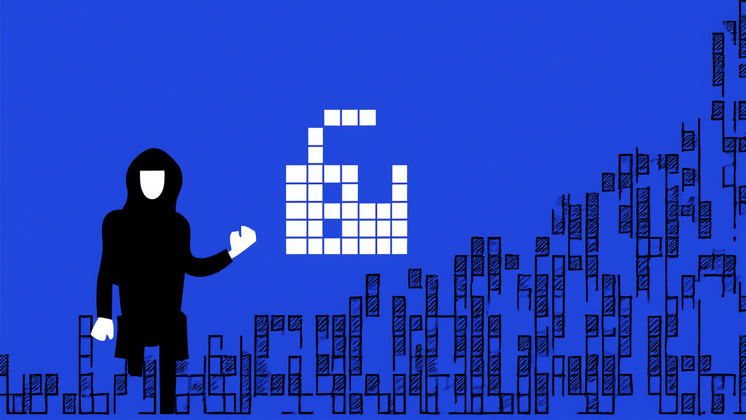In 2023, Australians over 65 years of age lost more than $120m to scams, while those aged between 55 and 64 lost more than $100m. When compared to the $16m lost to scams by those aged 18-24, and the $45m lost by 25-34 year olds, it’s clear that older people are falling victim to scams to a greater extent than their younger counterparts.
It’s easy to understand why: they’re targeted due to their perceived financial stability and sometimes their unfamiliarity with technology. As a group, they’re not digital natives – meaning they may not feel as confident online or with technology as younger people.
Plus, they’re from a generation that didn’t have to worry too much about being scammed. Yes, in previous, less digital decades, investment scams still existed, as did work from home scams – but, today, scams are on the upswing and have been for a while. In many bygone eras, you simply didn’t need to worry all that much about being conned every time the phone rang or a letter came through the post.
However, it's not just older demographics who are vulnerable to scams and cybercrime. Many scam tactics are specifically designed to capitalize on human error whenever we're inexperienced, rushed, stressed, anxious or distracted. So, how do you protect your loved ones from scams? Here are our seven tips.
1. Help them understand the need to be alert
First things first, to protect the elderly and family members from scams, it’s good to have a conversation about just how many people are trying to scam everyone today. It’s not just a problem facing a particular demographic – if you’re online and/or have a phone, you’re a potential victim.
Scam phone calls and text messages are an – almost – daily occurrence. On average, Australians receive almost five spam phone calls, text messages, social media messages and emails per week, so it’s important to help loved ones know the extent of the challenge.
How to help: Talk to them about why every email, phone call, text message and social media interaction needs to be treated with absolute caution, as do things like investment opportunities that are ‘endorsed’ by a celebrity.
There are so many scams today that it can be difficult for all of us to keep up. People like to feel in control and empowered, so by sharing information, you can help them understand things to look out for.
How to help: Share information with them about the latest scams on Facebook, WhatsApp, and via email, as well as phone calls, text message and scam tactics like one-ring scams. Alternatively, consider talking through each piece of information with them, and creating a checklist of things to look out for.
3. Practice good online habits
One link or download is all it can take to become a cybercrime victim, so it’s important for loved ones to be alert, but also be able to use the internet with confidence. Understanding the importance of HTTPS sites when purchasing, avoiding deals that look ‘too good to be true’ and knowing not to give anyone remote access to a device are all things that should be front of mind for all of us when online.
How to help: Share information sheets about things to look out for, including suspicious links, secure sites and downloads.
4. Use a password manager
Reused passwords, and passwords scribbled on bits of paper, kept in an address book or on a computer text file can be a major cybersecurity risk. There are a number of very good password manager apps available that can help keep unique passwords safe and reduce the risk of a data breach having a greater impact than it should.
How to help: Talk to your friend or relative about subscribing to a password management app, and help them install it across their devices.
5. Keep software updated
While being hypervigilant about what’s downloaded onto devices is essential, that cannot be to the exclusion of software and updates that need to be downloaded. Software updates help keep devices and accounts secure, and should be downloaded and installed as soon as they are available.
How to help: Help your elderly friend or relative understand what to look for in terms of software updates, and how to install them. If it’s easier, arrange a regular time to sit with them to check and update their devices.
6. Keep social media accounts private – and be careful of what’s posted
Four million of Facebook’s 20m-plus users in Australia are aged over 55, and social media is a major opportunity for scammers to exploit people. Marketplace scams, romance scams and long-lost relative scams are all common, so it’s important to be aware of them. How to help: Check your friend or relative’s security settings on social media are private, and share information on common scams to be aware of.
7. Don’t feel ashamed if they do get scammed – report it!
Of course, none of us want to be scammed, but many of us are. More than 300,000 scams were reported in Australia in 2023 – that’s more than 800 every single day.
If a loved one does think they’ve been scammed, it’s important to act fast, calling the relevant business (e.g. their bank) on the publicly listed number to limit the opportunity. If malware (malicious software) has been downloaded via a suspicious link, they need to take steps to minimize the opportunity for scammers to make matters worse, by doing things like disconnecting from the internet immediately.
Call IDCare – Australia and New Zealand’s national identity and cyber support service – on 1800 595 160. They can help make a plan – for free – to limit the damage. Also, be sure to report any successful or attempted scam to Scamwatch.
Has your data (or a loved one's) been exposed in a breach?
Data breaches and leaks can put personal data into the hands of hackers and cybercriminals, making you or a loved one more susceptible to scams. Use our free data checker tool to see if your email has been exposed.







